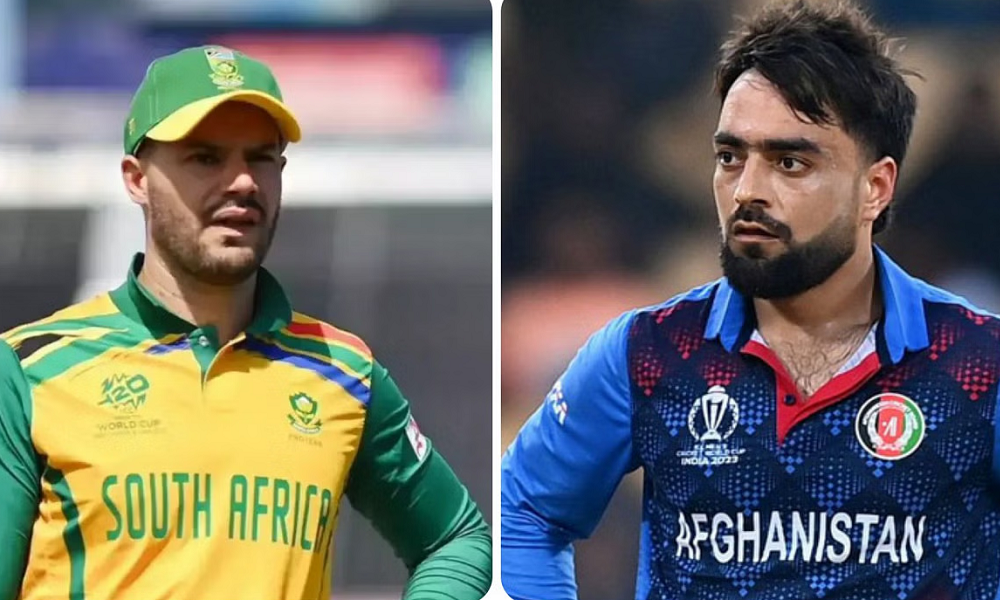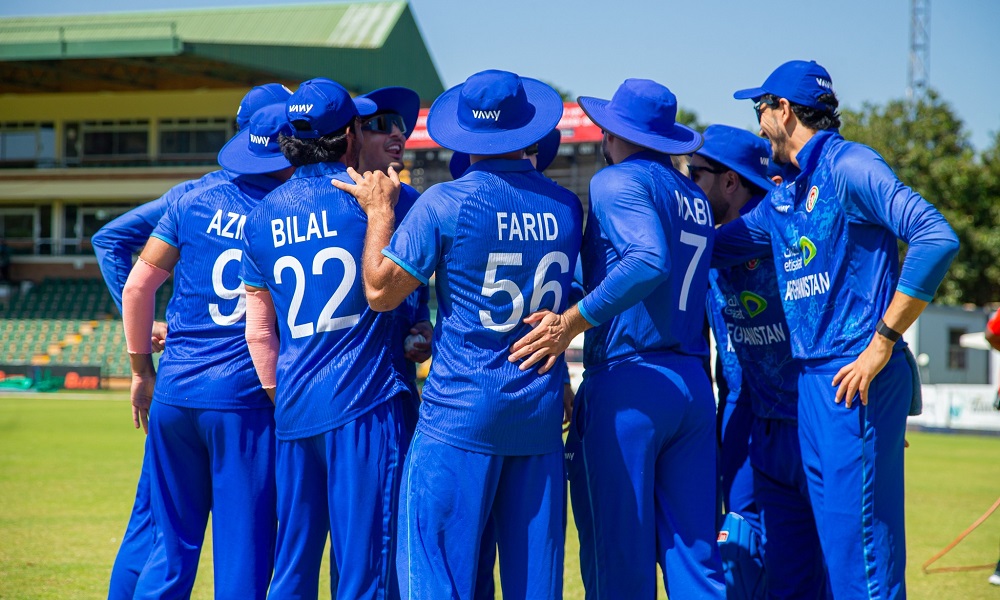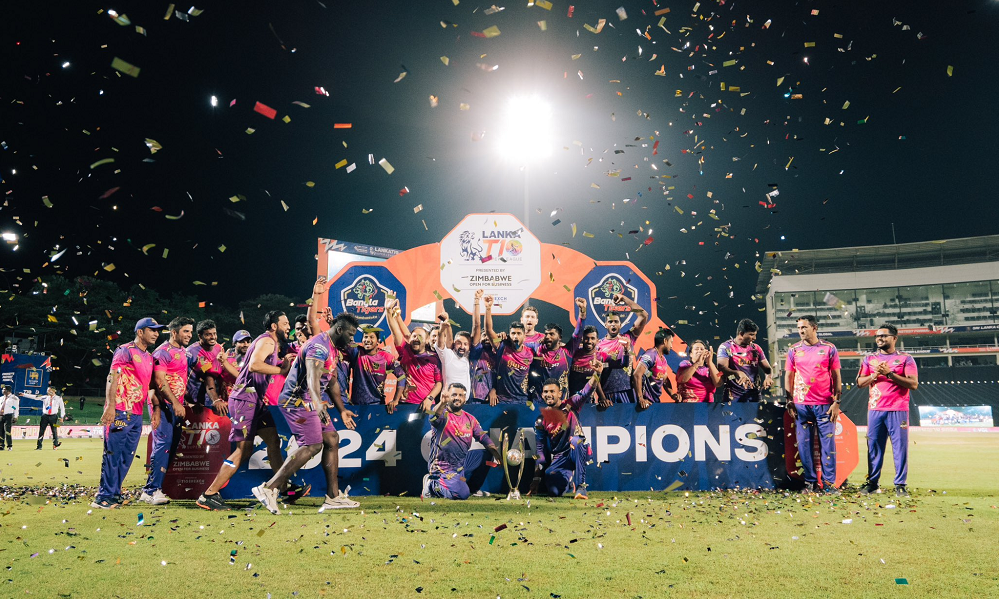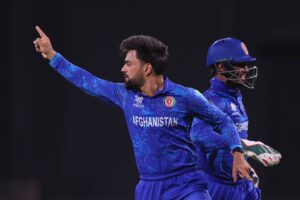Sport
History in the making as Afghanistan face South Africa in their ICC T20 World Cup semi-final
South Africa’s former president Nelson Mandela saw sport as a unifying mechanism that could lessen divisions between the people

Afghanistan and South Africa are set to face off early Thursday in the first semi-final of this year’s T20 World Cup and whichever team wins will make history, as neither have ever played in an ICC T20 World Cup final.
For Afghanistan, the mere thought of making it this far in the tournament was a pipe dream just a few years ago.
However, the team has taken the world by surprise and risen up through the T20 ranks at a meteoric pace.
Since being granted international status in 2011, Afghanistan’s success in just 13 years is testimony to the Afghan cricketing fraternity and the players’ resilience and commitment to the game.
Excitement ahead of the match was almost palpable by Wednesday afternoon with social media platforms buzzing with anticipation for a potential India vs Afghanistan final.
Thousands of users expressed their support for Rashid Khan and his men, a team that has carried the tag of “underdog” for quite some time. While others leaned more towards an India vs South Africa final, an “underdog” win on a global sport stage is not unheard of.
In fact South Africa, also once considered an underdog, pulled off an incredible win in the 1995 Rugby World Cup, after having been in global isolation for years, due to sanctions leveled against the former apartheid government.
This Rugby World Cup had been the first major sporting event to take place in South Africa following the end of apartheid and it was the first Rugby World Cup in which South Africa was allowed to compete.
Today, that match stands as a hugely symbolic moment in South African history.
'One Team, One Country' - Nelson Mandela's slogan to forge unity among a divided nation in 1995
The president at the time, Nelson Mandela, used the opportunity to orchestrate a show of unity among the people of a deeply divided nation by using the slogan “One Team, One Country.”
The former government’s policy of apartheid along with its gross human rights violations had long made South Africa an international pariah and from 1964 to 1992 the country was banned from most global sporting events including the Olympic Games.
Mandela however saw the rugby world cup as a way to help lessen divisions between Black and White South Africans and foster a shared national pride - especially as the country was host to this global event.
By the time South Africa made it to the final, against New Zealand, the nation had rallied in support of the team, put aside their differences, and were rooting wholeheartedly for their country.
Since then, South Africa has gone on to become a global powerhouse in rugby and in cricket, with countless players earning international respect by playing for foreign clubs and leagues.
To a degree, parallels can almost be drawn between South Africa’s history and Afghanistan’s current situation.
For years, cricket in Afghanistan was considered a Pashtun game, just like Black South Africans originally considered rugby to be a game played exclusively by White South Africans.
But this perception in Afghanistan has changed considerably over the past 10 years. After each victory, each milestone, and each successful sale of a player to one or other cricket league, the Afghanistan fan base has grown.
Today, millions of fans watch the matches on TV, they follow the team and players on social media, and hundreds of thousands of Afghan children look up to national players such as Rashid Khan, Mohammad Nabi, Fazalhaq Farooqi and Rahmanullah Gurbaz to name just a few.
[caption id="attachment_610328" align="alignnone" width="600"] Afghanistan after beating Bangladesh earlier this week[/caption]
Afghanistan after beating Bangladesh earlier this week[/caption]
It’s these players who are the role models, the heroes, who have against all odds risen up through the debris of war and taken the cricketing world by storm.
The power of sport as a uniting force was clear after the 1995 Rugby World Cup.
In his biography, Mandela, Martin Meredith wrote: “The whole of South Africa erupted in celebration, Blacks as joyful as the Whites.”
“Never before had Blacks had cause to show such pride in the efforts of their White countrymen. It was a moment of national fusion that Mandela had done much to inspire.”
Following South Africa's victory, Mandela donned a Springbok rugby shirt and cap and proudly presented the trophy to the South African captain Francois Pienaar.
Years later, when Mandela died, Pienaar said that “when the final whistle blew, this country changed forever.”
[caption id="attachment_610620" align="alignnone" width="600"] South Africa's former president Nelson Mandela hands Francois Pienaar the 1995 Rugby World Cup trophy[/caption]
South Africa's former president Nelson Mandela hands Francois Pienaar the 1995 Rugby World Cup trophy[/caption]
It was this display of unity, through sport, that crossed race, tribal and religious lines, and left instead “One Team, One Country”.
In the spirit of Mandela’s words and wisdom, one can understand what Afghanistan’s team captain Rashid Khan was alluding to in his video message on Wednesday when he called on the country, on Afghans at home and around the world, to support their team, and to keep them in their prayers.
But no matter the outcome of the T20 semi-final match on Thursday, the Afghanistan team are already winners in the eyes of millions of fans after having carved out their slice of history - by proving to be worthy of a nation’s pride and unquestionable support.
Fans across the country can tune in to Ariana Television on Thursday morning from 4.30am for the pre-match show. The match will be broadcast from 5am live and exclusively on Ariana Television.
RELATED STORIES
Afghanistan seal dramatic semi-final berth amid heart-stopping run chase
South Africa edge West Indies to reach World Cup semi-finals
Sport
Afghanistan clinches ODI series victory against Zimbabwe

Afghanistan's national cricket team triumphed over Zimbabwe by 8 wickets in the third and final One-Day International (ODI) to claim the series victory.
In a dominant bowling display, Afghanistan dismissed Zimbabwe for just 127 runs in 30.1 overs. The Afghan batsmen then chased down the target comfortably in 26.5 overs, losing only 2 wickets along the way.
The standout performer of the match was Allah Mohammad Ghazanfar, who took a remarkable 5 wickets, while Rashid Khan supported with 3 wickets. Azmatullah Omarzai and Farid Ahmad each claimed 1 wicket.
The first match of the series was abandoned due to rain, but Afghanistan bounced back strongly in the second match, securing a commanding 232-run victory.
This series win follows Afghanistan's earlier success in the T20I series against Zimbabwe, further cementing their dominance in international cricket.
Sport
Bangla Tigers lift Lanka T10 Super League title
Player of the match and player of the series was Titan’s skipper Dasun Shanaka.

Hambantota Bangla Tigers beat favorites Jaffna Titans by 26 runs in Thursday’s Lanka T10 Super League final at the Pallekele Stadium in Kandy.
The Tigers produced a fine all-round performance to beat the Titans, who had won all their matches in the lead up to the final.
Player of the match and player of the series was Titan’s skipper Dasun Shanaka.
Hambantota Bangla Tigers, put into bat first, posted 133 for seven from their allotted 10 overs through some useful contributions from their top order batsmen.
The openers Mohammad Shahzad and Kusal Perera added 35 runs from 2.4 overs before they suffered a middle order collapse and reached 59 for three at the halfway stage of the innings.
However, skipper Dasun Shanaka and Shevon Daniel revived the innings with a fourth-wicket partnership of 44 runs in three overs.
Shanaka made 21 with two sixes and two boundaries while Daniel struck 26 with one six and three boundaries before Kennar Lewis and Dhananjaya Lakshan added the finishing touches.
Chasing 133 runs for victory, Jaffna Titans lost wickets at regular intervals and they eventually finished at 107 for six despite a fighting unbeaten half century from middle order batsman Tom Abell.
Richard Gleeson wrecked the Hambantota Bangla Tigers’ innings with excellent figures of three wickets for 21 while Shanaka captured two wickets for four runs.
Sport
Afghanistan crush Zimbabwe by 232 runs in second ODI

Afghanistan defeated Zimbabwe by 232 runs in the second ODI on Thursday to secure a 1-0 lead in the three-match series.
Sent to bat first by Zimbabwe who won the toss, Afghanistan posted 286-6 in Harare.
Sediqullah Atal scored 104, his first hundred in an international match. Abdul Malik followed with 84.
In reply, Zimbabwe scored 54 runs before being bowled out in the 17.5 overs.
Allah Mohammad Ghazanfar and Naweed Zadran took three wickets each. Fazlullah Farooqi picked up two wickets and Azmatullah Omarzai one.
This was the second match of the ODI series between Afghanistan and Zimbabwe. The first was abandoned due to rain.
The third and final game of the series will be played on Saturday.
-

 Sport4 days ago
Sport4 days agoZimbabwe’s opening ODI against Afghanistan abandoned
-

 World4 days ago
World4 days agoNorth Korean troops suffer 100 deaths, struggling in drone warfare, South Korea says
-

 Latest News2 days ago
Latest News2 days agoAfghan men must stand with women to support viable future of country: US envoy
-

 Latest News3 days ago
Latest News3 days agoTwo horror accidents on Kabul-Kandahar highway leave 52 dead
-

 Sport3 days ago
Sport3 days agoAfghanistan crush Zimbabwe by 232 runs in second ODI
-

 Regional5 days ago
Regional5 days agoIran’s president to make rare visit to Egypt for D-8 summit
-

 International Sports4 days ago
International Sports4 days agoLanka T10: Kandy Bolts in at 4th spot in playoffs after thrilling day
-

 World4 days ago
World4 days agoNATO takes over coordination of military aid to Kyiv from US, source says


























